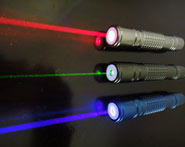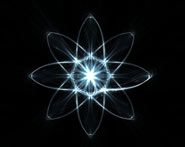


 الفيزياء الكلاسيكية
الفيزياء الكلاسيكية
 الكهربائية والمغناطيسية
الكهربائية والمغناطيسية
 علم البصريات
علم البصريات
 الفيزياء الحديثة
الفيزياء الحديثة
 النظرية النسبية
النظرية النسبية
 الفيزياء النووية
الفيزياء النووية
 فيزياء الحالة الصلبة
فيزياء الحالة الصلبة
 الليزر
الليزر
 علم الفلك
علم الفلك
 المجموعة الشمسية
المجموعة الشمسية
 الطاقة البديلة
الطاقة البديلة
 الفيزياء والعلوم الأخرى
الفيزياء والعلوم الأخرى
 مواضيع عامة في الفيزياء
مواضيع عامة في الفيزياء|
Read More
Date: 24-5-2016
Date: 1-1-2017
Date: 16-9-2020
|
THE NEUTRON
A neutron has a mass slightly greater than that of a proton. Neutrons have no electrical charge, and they are roughly as dense as protons. However, while protons last for a long time all by themselves in free space, neutrons do not. The mean life of a neutron is only about 15 minutes. This means that if you gathered up a batch of, say, 1 million neutrons and let them float around in space, you would have only about 500,000 neutrons left after 15 minutes. After 30 minutes, you would have approximately 250,000 neutrons remaining; after 45 minutes, there would be only about 125,000 neutrons left.
Neutrons can last a long time when they are in the nuclei of atoms. This is a fortunate thing because if it weren’t true, matter as we know it could not exist. Neutrons also can survive for a long time when a huge number of them are tightly squeezed together. This happens when large stars explode and then the remaining matter collapses under its own gravitation. The end product of this chain of events is a neutron star.



|
|
|
|
دراسة يابانية لتقليل مخاطر أمراض المواليد منخفضي الوزن
|
|
|
|
|
|
|
اكتشاف أكبر مرجان في العالم قبالة سواحل جزر سليمان
|
|
|
|
|
|
|
اتحاد كليات الطب الملكية البريطانية يشيد بالمستوى العلمي لطلبة جامعة العميد وبيئتها التعليمية
|
|
|